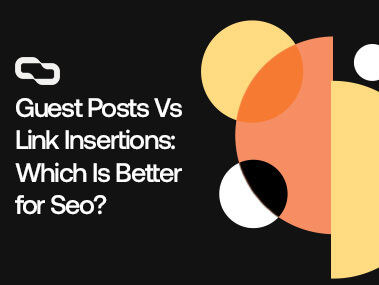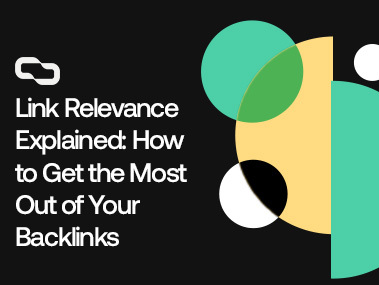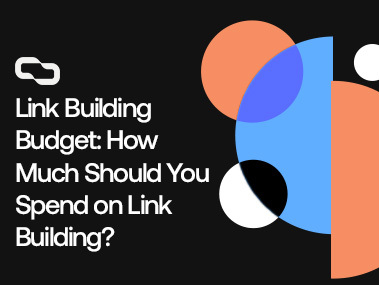Is Link Building Still Relevant in 2024?
Link building is still relevant to SEO in 2024.
In fact, it has become a lot more important nowadays due to several factors, including AI and the absence of unique content angles.
But don’t take my word for it.
In this article, I’ll provide you with all the information you need to answer this question yourself.
The Importance of Link-Building Throughout The Years
Albert Einstein once said: “If you want to know the future, look at the past.”
So let’s take a look at the history of search engine algorithms.
1. The Pre-Google Era

Back then, the search engine space was pretty competitive.
We had many different search engines, including AltaVista, Excite, Lycos, and Yahoo.
There were two types of search engines:
- Crawl-Based: Similar to Google, these search engines were crawling the web and adding all the different websites to their directory.
- Human-Powered: These search engines used editors to manually approve websites and add them to the search engine’s directory.
Fun Fact: In the early days of Yahoo, you had to manually submit your pages to the Yahoo directory for indexing, so users would find it.
So, in short, search engines were akin to big directories.
They were more like Yellow Pages for websites rather than an actual algorithmic search engine like we have today.
How would you rank your pages then? You might ask.
Well, by keyword stuffing.
Want to outrank a page that uses the main keyword 100 times?
Just write a piece that uses this keyword 200 or 300 times!
2. The Spam Era
By this time, most search engines were only looking at on-page factors, such as keyword density, tags, internal links, etc. up until Larry Page and Sergey Brin created BackRub — which is the predecessor of Google.
BackRub was the first link-based search engine.
This means that in addition to the on-page factors, BackRub was also looking at off-page factors, such as the quantity and quality of backlinks as well as the anchor text used.
Basically, their idea was if people are talking about a page, it must be important, and it should rank higher for other people to find it.
And this simple idea changed the whole Search Engine Optimization landscape.
Now, while this idea made accessing information on the internet much easier, it had one downfall.
SEOs.
The PageRank algorithm was looking at the quantity of backlinks rather than the quality.
So the more backlinks you have, the higher you’ll rank.
SEO practitioners quickly understood the value of backlinks, and they started abusing the algorithm in every way they could.
They were building hundreds of forum links, blog comments, directories, and every web 2.0 page you could think of.
They even created automated link-building tools that would automatically build hundreds of thousands of these links for them.
And when it comes to content.
No one cared.
They were spinning content, copying from other sources, and ranking gibberish pages just to get the AdSense money.
This became a big problem for Google, so they had to address it.
And oh boy, they did.
3. The War on Spam

Google launched multiple algorithm updates to address spam.
Here is a breakdown of the most impactful ones:
- Google Florida Update: This update used statistical analysis to find unnatural backlink patterns and penalize websites that participated in link schemes. Launched in November 2003, it marked the beginning of Google's fight against SEO techniques that tried to game the system, and many businesses noticed a significant drop in their rankings almost overnight.
- Google Panda Update: This one aimed to get rid of "low-quality" or "thin" websites and return higher-quality websites near the top of the Google search results. It primarily targeted content farms, websites with duplicated content, and sites with a high ad-to-content ratio.
- Google Penguin Update: The Penguin update targeted websites that were using now-frowned-upon link schemes and keyword stuffing. Its goal was to penalize sites whose backlinks were manipulative or of low quality.
- Google Hummingbird: Hummingbird wasn't just an update. It was more of a complete overhaul of the core algorithm. It focused on understanding the intent behind a user's search query rather than just the individual keywords. This meant Google could better interpret the context of a search and deliver results that matched the user's intent, even if the exact keywords weren't present in the search query.
To this day, Google is still refining its algorithm with its search quality evaluation process to make the SERPs a better place.
However, despite their best effort, we’re still far from perfect SERPs — where the best content always ranks at the top.
What Does Google Say About Link Building?
“Don’t build links, just write quality content and you’ll rank.”
That’s what Google has been saying for the past decade.
However, one quick look at the SERPs and you’ll immediately realize that links are the most important ranking factor.
Don’t get me wrong, quality content is very important.
But the data shows that an average article with lots of links will always outrank its counterpart, even if it’s the best piece ever written.
That’s why the SERPs are now filled with parasite websites that are just using their huge domain authority to outrank everyone.
They don’t have unique, original content, their articles aren’t written by experts, they have no topical authority, or whatever you consider the best SEO practices.
They have nothing but a whole load of high-quality backlinks pointing to their pages, and they’re winning.
That being said, it’s important to mention that Google has become a lot better at detecting and devaluing low-quality backlinks.
Every year, they penalize hundreds of thousands of websites that participate in link schemes.
However, this doesn’t make link-building campaigns less important or a waste of time as many Googlers suggest.
In fact, it makes it a lot more important, as I’ll discuss in the next section.
Why Will Links Be Even More Important In The Future?

Right now, there are 2 big issues with the SERPs.
First, we have AI content.
In just a few minutes, you could write a decent article that matches the search intent and provides value to the users.
This means that content is no longer an issue — just like what it was before the Panda update.
So there goes the “just write good content and you’ll rank” narrative.
Some would argue that AI content is generic and it’s not unique, which brings us to the second problem with the SERPs — the search intent.
Search for any keyword right now and you’ll see that almost every article on the first page is the same.
They all have a similar structure, similar headings, and even similar titles.
Some might have more information or deliver content better than others.
But basically, they are all the same.
If you try to write a piece with a unique angle or a different structure than the top-ranking pages, you’ll not rank.
It’s just the reality of the SERPs right now.
Hopefully, this changes in the future, but for now, let’s agree that this makes it a lot harder for Google to rely on on-page factors.
Sure, they could detect and penalize AI content.
But you must understand that Google is a business, and detecting AI takes a lot of resources AKA money.
So, think with me.
What factor that Google rely on and is really hard to replicate?
The answer is backlinks.
But not any backlinks.
If Google adds more weight to backlinks in its algorithm, it has to raise the bar of what it considers high-quality backlinks, or else it would bring us back to the pre-penguin days.
So backlinks will be more important, but what is considered high-quality links will be a lot harder to get.
FAQs
Is Link-Building Still Effective?
Link building is still effective and it’s expected to be even more effective in the future.
What Is the Future of Link-Building?
The future of link-building will be about getting natural backlinks from real, high-quality websites that Google loves and trusts. The algorithm will be a lot better at detecting and penalizing spammy links, guest-posting farms, and websites with an unnatural backlink profile.
Is Link-Building Necessary?
Link-building is necessary if you want to rank for competitive keywords. However, you can still rank from some keywords without any link-building at all.
Conclusion
Link-building will always remain relevant.
What is likely to change are the tactics we use to get backlinks and the criteria by which we evaluate links.
If you want to futureproof yourself against the upcoming Google algorithm updates, you should invest heavily in quality backlinks.
Here at Get Me Links, we stay up-to-date with modern link-building strategies.
We only build high-quality, relevant links on websites that have never been penalized before, have high domain authority, and get decent organic traffic from Google.
If you want to take your SEO game to the next level, feel free to book a consultation call with one of our experienced link builders.
Find out your exact cost of ranking for your dream keyword
Let’s get you ranking now
If you want the team at Get Me Links to help you get more traffic



